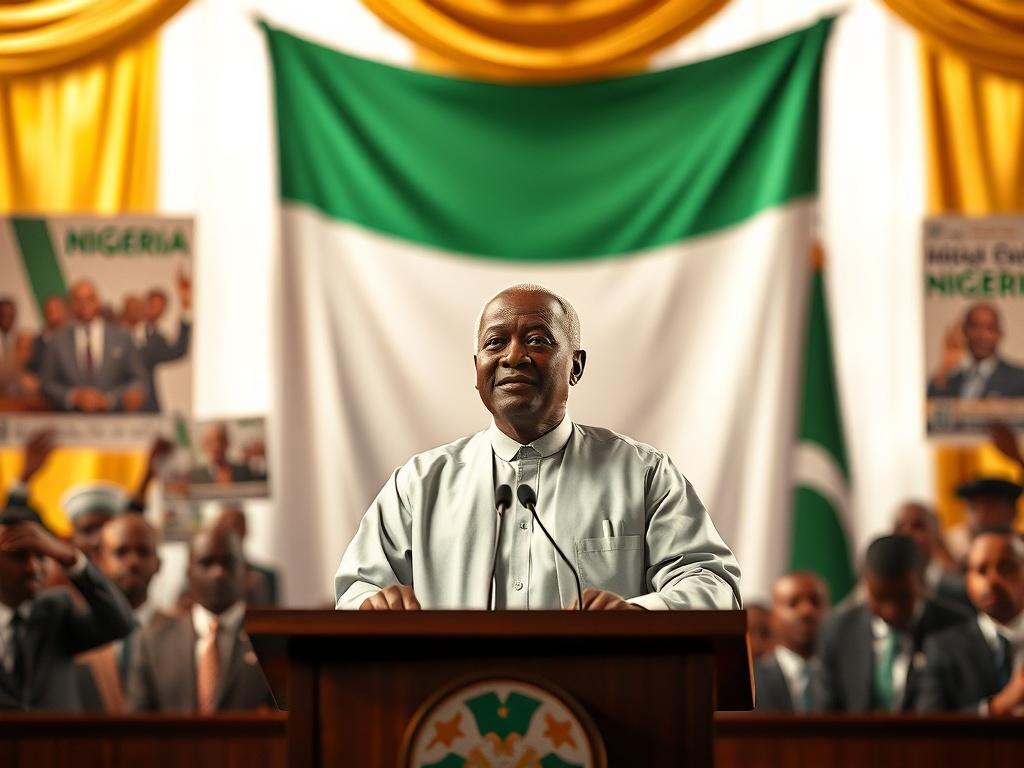Website designed with the B12 website builder. Create your own website today.
Start for free
Nigeria has navigated a complex journey of democratic elections since her independence in 1960, marked by a series of political shifts, military coups, and transitional governments. Understanding this history is crucial, as it reflects the evolution of the nation's leadership and the impact of various elected heads of state. Each election has shaped the trajectory of Nigeria's political landscape, revealing the interplay between governance and policy-making. By exploring these democratic elections, we can better appreciate how different administrations have influenced the nation's growth and faced challenges along the way.
In this blog post, we will delve into the intricacies of Nigeria's democratic elections, highlighting the key elected heads of state, the political parties that have governed, and the specific policies implemented throughout the years. We will examine the periods each government has been in office, the ideological foundations of their political platforms, and the direct effects of their policies on the lives of Nigerians. By capturing the essence of Nigeria’s democratic evolution since independence, we aim to provide readers with a comprehensive understanding of the nation’s political dynamics and their broader implications.
A historical overview of Nigeria's democratic elections since her independence in 1960
Since gaining independence in 1960, Nigeria's democratic landscape has undergone significant transformations amid challenges and triumphs. The first election held in 1960 was a milestone, where Nigerians participated in deciding their future after years of colonial rule. Despite the initial promise of a stable democracy, the country saw its first military coup in 1966, which set the stage for years of political instability. However, the return to civilian rule in the late 1990s marked a turning point in Nigeria’s democratic journey, culminating in the establishment of a more structured electoral process aimed at ensuring greater citizen participation.

The evolution of Nigeria's democratic elections illustrates the resilience of its people and institutions. Following the restoration of democracy in 1999, the country has witnessed a series of elections that, while often contentious, signify the growing commitment of Nigerians to uphold democratic norms. The Independent National Electoral Commission (INEC) has progressively worked to improve the election process, implementing reforms to enhance transparency and credibility. Despite encountering challenges such as electoral malpractices and violence, Nigeria has continued to hold elections every four years, reflecting a gradual but steady movement toward a more mature democratic system aligned with the aspirations of its citizens since independence.
The evolution of elected heads of state and their governments: A closer look at years in office and party dynamics
Since gaining independence in 1960, Nigeria has experienced a tumultuous journey through democracy, marked by varying degrees of political stability and economic policies. The first elected head of state, Nnamdi Azikiwe, served from 1963 to 1966, representing the National Council of Nigeria and the Cameroons (NCNC). His administration faced challenges, including regional disparities and ethnic tensions, leading to a military coup that interrupted the democratic process. However, subsequent elections introduced a wave of political actors and parties that shaped Nigeria's democratic landscape, including the ascendancy of the Nigerian People's Party (NPP) and the United National Independence Party (UNIP) in the 1970s.
The return to democracy in 1999 heralded a new era, with Olusegun Obasanjo becoming president, initially under the banner of the People's Democratic Party (PDP). His two terms saw significant political reforms and attempts to stabilize the economy but also revealed the complexities of governance in a diverse nation. Successive presidents, including Umaru Musa Yar'Adua and Goodluck Jonathan, continued this trajectory, each bringing unique policies to address corruption, education, and healthcare. However, their years in office were often accompanied by criticism regarding implementation and results. As a result, the dynamics between political parties, governance, and public policy remain a crucial part of understanding Nigeria's democratic evolution since her independence in 1960.
Government policies and their impact: Analyzing the effects of leadership decisions on Nigeria’s development
Since gaining independence in 1960, Nigeria's elected leaders have implemented various policies that significantly shaped the country's socio-economic landscape. Each administration sought to address pressing issues such as infrastructure development, education, healthcare, and economic diversification. For example, the Second Republic under President Shehu Shagari introduced the Green Revolution policy aimed at enhancing agricultural productivity. This initiative aimed to reduce food importation and bolster local production, ultimately impacting the nation’s food security positively. However, the effects of such policies have often been mixed, combining genuine progress with challenges like corruption and mismanagement.
In more recent years, the government under President Muhammadu Buhari prioritized anti-corruption measures and economic reform through the Economic Recovery and Growth Plan (ERGP). This policy focused on stabilizing the economy amidst falling oil prices and promoting job creation. The administration's efforts to diversify the economy, emphasize local manufacturing, and boost the agricultural sector have yielded some positive results, particularly in rural areas. Yet, critics argue that inconsistent implementation and inadequate infrastructure hindered the full realization of these policies. As Nigeria continues to navigate its complex political landscape, the impacts of government policies underscore the intricate relationship between leadership decisions and the nation’s development trajectory.